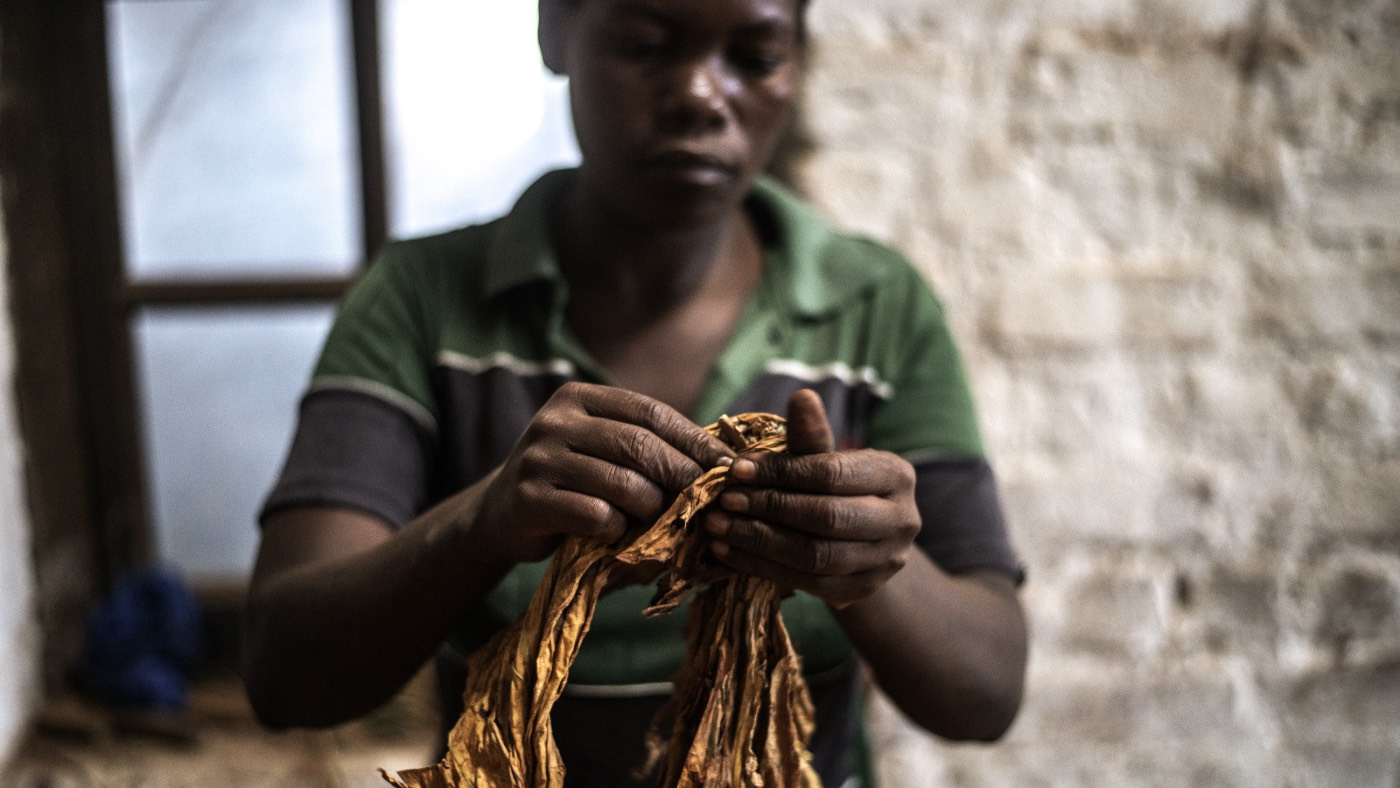Tobacco giant faces landmark legal case over child labour
Lawsuit claims families in Malawi were forced to employ their children

A free daily email with the biggest news stories of the day – and the best features from TheWeek.com
You are now subscribed
Your newsletter sign-up was successful
Human rights lawyers are set to bring a landmark case against British American Tobacco on behalf of hundreds of child labourers and their parents in Malawi.
Leigh Day’s lawyers are seeking compensation for more than 350 people in the high court in London, arguing that the British tobacco giant is guilty of “unjust enrichment”. The legal team says it anticipates the number of child labourer claimants could rise as high as 15,000.
The Guardian says the case is “potentially one of the biggest that human rights lawyers have ever brought” and could have wider implications, “transforming the lives of children in poor countries who are forced to work to survive not only in tobacco but also in other industries such as the garment trade”.
The Week
Escape your echo chamber. Get the facts behind the news, plus analysis from multiple perspectives.

Sign up for The Week's Free Newsletters
From our morning news briefing to a weekly Good News Newsletter, get the best of The Week delivered directly to your inbox.
From our morning news briefing to a weekly Good News Newsletter, get the best of The Week delivered directly to your inbox.
Although BAT insists it has told farmers not to use their children as unpaid labour, the lawsuit says the families cannot afford to work their fields otherwise, because they receive so little money for their crop.
Many of the families are from the poverty-stricken region of Phalombe, in the south of Malawi. The Guardian says they are recruited to tobacco farms in the north of the country “with the promise of food, accommodation and a lump sum in cash for their crop”.
There, it explains, “accommodation is a straw hut they must build themselves; the food is a monthly sack of maize, which is insufficient to feed the family and which is stopped before their tenancy ends”.
The lump sum they are paid at the end of the season is often reduced by more than half after deductions for tools and loans that the families have to take out to pay for essentials.
A free daily email with the biggest news stories of the day – and the best features from TheWeek.com
BAT insists it “strongly agrees that children must never be exploited, exposed to danger or denied an education”.
The issue of child labour has had closer attention this year. In August, it was revealed that schoolchildren have been drafted in to make Amazon’s Alexa devices in China as part of a controversial and often illegal attempt to meet production targets.
–––––––––––––––––––––––––––––––For a round-up of the most important stories from around the world - and a concise, refreshing and balanced take on the week’s news agenda - try The Week magazine. Get your first six issues for £6–––––––––––––––––––––––––––––––
-
 Crisis in Cuba: a ‘golden opportunity’ for Washington?
Crisis in Cuba: a ‘golden opportunity’ for Washington?Talking Point The Trump administration is applying the pressure, and with Latin America swinging to the right, Havana is becoming more ‘politically isolated’
-
 5 thoroughly redacted cartoons about Pam Bondi protecting predators
5 thoroughly redacted cartoons about Pam Bondi protecting predatorsCartoons Artists take on the real victim, types of protection, and more
-
 Palestine Action and the trouble with defining terrorism
Palestine Action and the trouble with defining terrorismIn the Spotlight The issues with proscribing the group ‘became apparent as soon as the police began putting it into practice’
-
 Epstein files topple law CEO, roil UK government
Epstein files topple law CEO, roil UK governmentSpeed Read Peter Mandelson, Britain’s former ambassador to the US, is caught up in the scandal
-
 Iran and US prepare to meet after skirmishes
Iran and US prepare to meet after skirmishesSpeed Read The incident comes amid heightened tensions in the Middle East
-
 Israel retrieves final hostage’s body from Gaza
Israel retrieves final hostage’s body from GazaSpeed Read The 24-year-old police officer was killed during the initial Hamas attack
-
 China’s Xi targets top general in growing purge
China’s Xi targets top general in growing purgeSpeed Read Zhang Youxia is being investigated over ‘grave violations’ of the law
-
 Panama and Canada are negotiating over a crucial copper mine
Panama and Canada are negotiating over a crucial copper mineIn the Spotlight Panama is set to make a final decision on the mine this summer
-
 Why Greenland’s natural resources are nearly impossible to mine
Why Greenland’s natural resources are nearly impossible to mineThe Explainer The country’s natural landscape makes the task extremely difficult
-
 Iran cuts internet as protests escalate
Iran cuts internet as protests escalateSpeed Reada Government buildings across the country have been set on fire
-
 US nabs ‘shadow’ tanker claimed by Russia
US nabs ‘shadow’ tanker claimed by RussiaSpeed Read The ship was one of two vessels seized by the US military